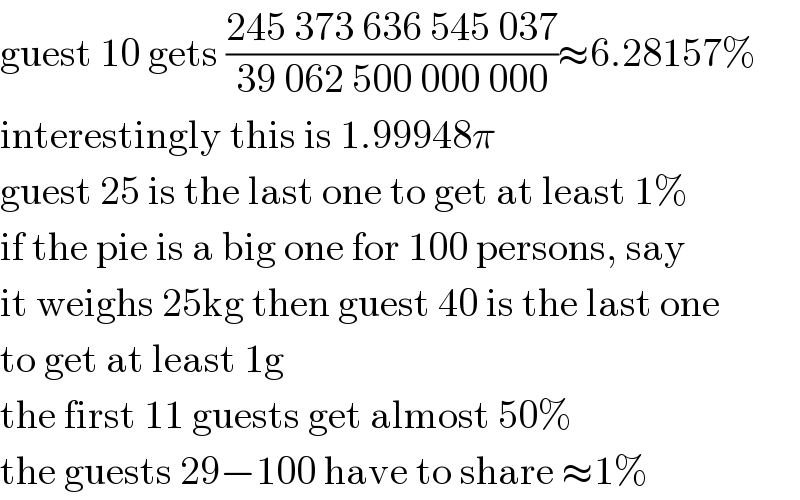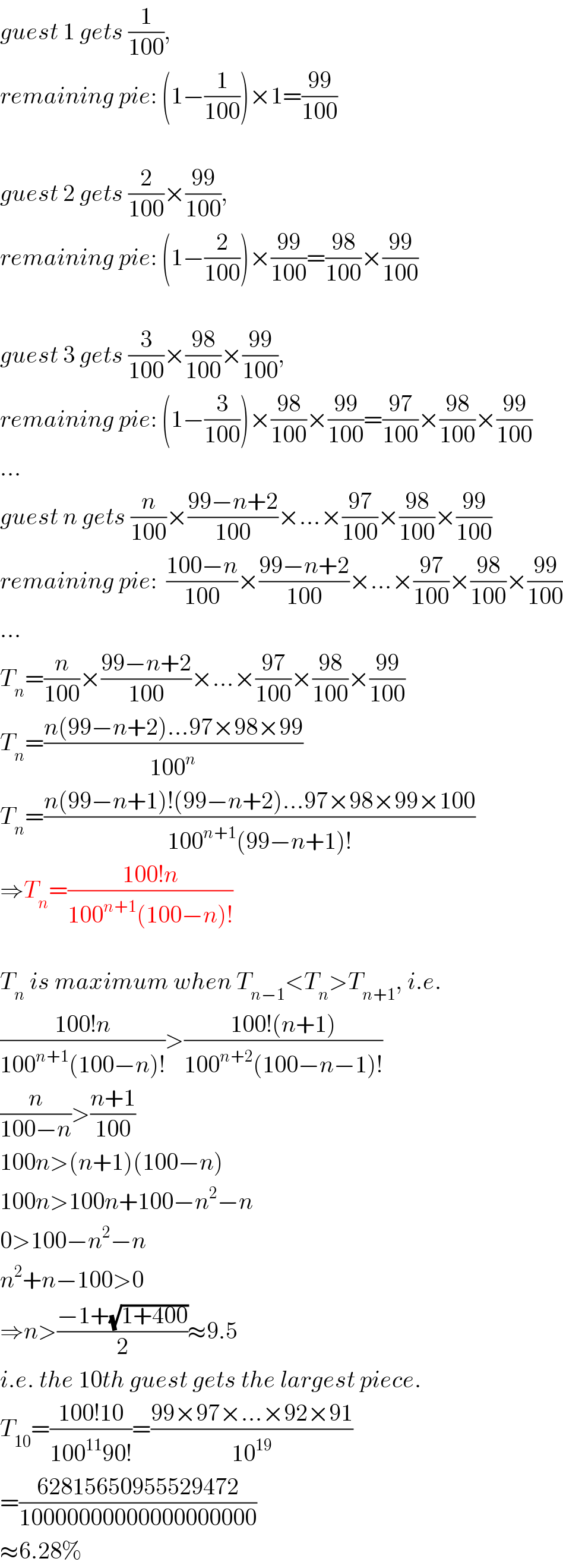
Question and Answers Forum
Question Number 58663 by mr W last updated on 27/Apr/19

Answered by ajfour last updated on 27/Apr/19

Answered by MJS last updated on 27/Apr/19

Commented by peter frank last updated on 30/Apr/19

Commented by MJS last updated on 01/May/19

Commented by peter frank last updated on 01/May/19

Commented by MJS last updated on 01/May/19

Commented by mr W last updated on 06/May/19

Answered by mr W last updated on 07/May/19

Commented by MJS last updated on 06/May/19

Commented by peter frank last updated on 19/May/19

